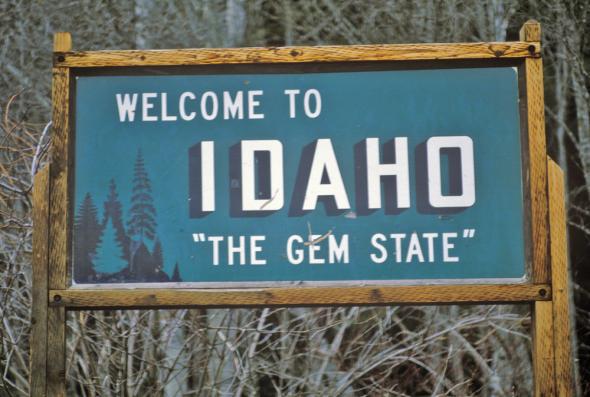On Tuesday evening, U.S. District Magistrate Judge Candy Dale struck down Idaho’s gay marriage ban, holding the law to violate both the due process and equal protection clauses of the U.S. Constitution. Dale’s sweeping 57-page opinion provides a comprehensive history of individual liberty and minority rights in America, concluding that:
The Plaintiffs are entitled to extraordinary remedies because of their extraordinary injuries. Idaho’s Marriage Laws withhold from them a profound and personal choice, one that most can take for granted. By doing so, Idaho’s Marriage Laws deny same-sex couples the economic, practical, emotional, and spiritual benefits of marriage, relegating each couple to a stigmatized, second-class status. Plaintiffs suffer these injuries not because they are unqualified to marry, start a family, or grow old together, but because of who they are and whom they love.
Intriguingly, Dale applied “strict scrutiny” to her due process analysis and “heightened scrutiny” to her equal protection evaluation, in effect providing gays with the highest level of constitutional protection. Although the Supreme Court hasn’t yet explained exactly how much protection the Constitution affords gay people, Dale shrugs off this ambiguity by noting that “the facts are clear and the law teaches that marriage is a fundamental right of all citizens … [and] laws that implicate fundamental rights are subject to strict scrutiny.” She also refused to stay her order as the state appeals it, instead ordering same-sex marriages to begin on Friday at 9 a.m.
Apart from her refreshingly compassionate and legally coherent reasoning, Dale’s ruling is especially significant given Idaho’s startling history of anti-gay laws. For years, Idaho was the sole state in the country that punished sodomy with a life-sentence in prison. This punishment was only revoked by the Supreme Court’s ruling in Lawrence v. Texas—in 2003. Eleven years ago, a gay couple in Idaho could be thrown in jail for life. Starting Friday morning, they’ll be able to obtain a valid marriage license. Perhaps this is what Dale has in mind when she notes, in the peroration of her opinion, that “slow as the march toward equality may seem, it is never in vain.”
